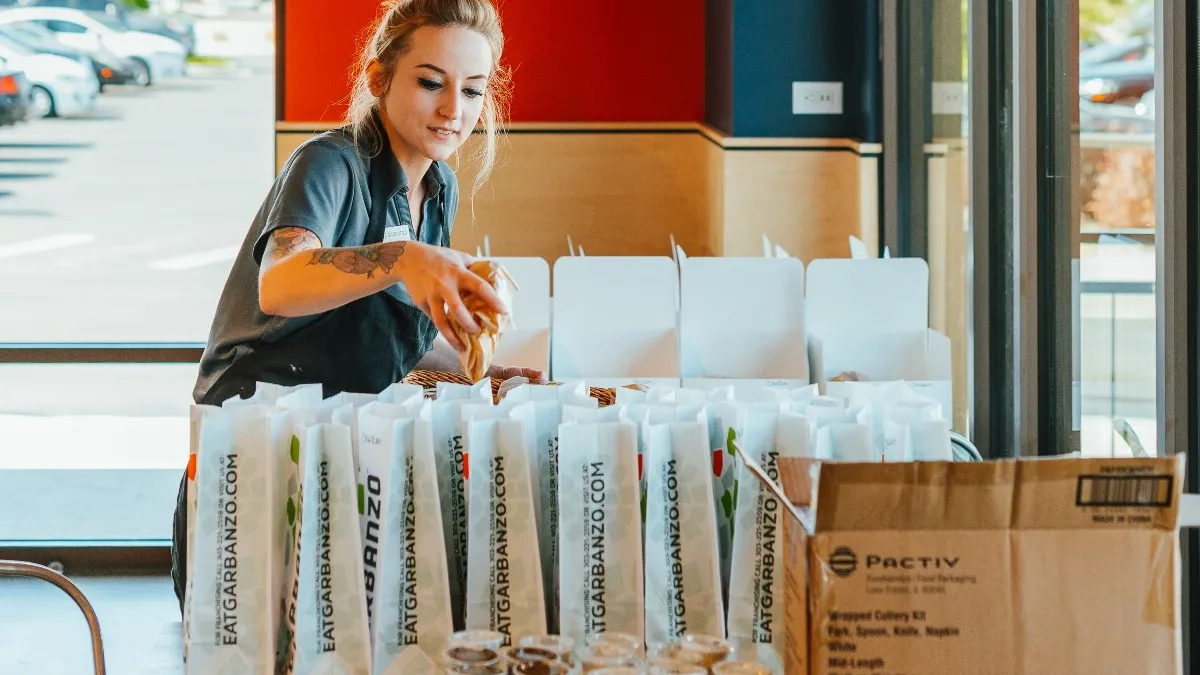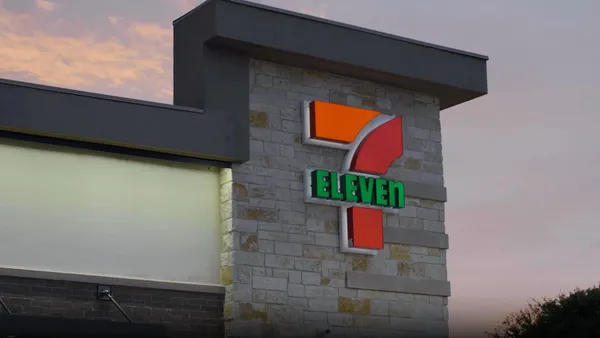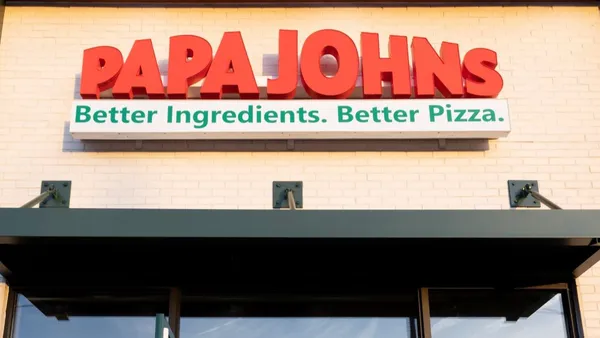Dive Brief:
- Garbanzo Mediterranean Grill, parent company of Denver-based fast casual concept Garbanzo Mediterranean Fresh, and affiliated companies filed for Chapter 11 bankruptcy protection on Aug. 12. It joins a growing number of chains, including Chuck E. Cheese, California Pizza Kitchen and Pizza Hut’s biggest franchisee NPC International, that have filed in the past few months.
- CEO James Park told the Denver Business Journal that nearly half of the chain’s 25 locations are in nontraditional trade areas like college campuses and airports, and have remained closed since March. Park expects them to reopen this month.
- The other 13 Garbanzo locations have continued operations and have improved year-over-year sales. The company still plans to open six new stores through early 2021, including a Denver airport location.
Dive Insight:
About half of Garbanzo’s nontraditional landlords were unwilling to renegotiate rent contracts, according to the Denver Business Journal, a challenge faced by many restaurant companies and one that is expected to worsen. In New York City alone, for example, 83% of restaurant owners were unable to pay their July rent. According to the filing, Garbanzo’s liabilities are estimated to be between $10 million and $50 million, including property-rent contracts that the company can’t uphold.
And while the company was approved for a Paycheck Protection Program loan, the federal government’s funding programs have largely covered payroll, and about 25% of funding can be used on fixed costs like rent.
While Garbanzo is expected to continue on its growth path, it will also contend with a number of continued challenges, including its heavy non-traditional and urban-store locations that are predicted to have a slow comeback. Catering also generates almost one-third of revenue at many stores and will likely take a while to recover as many office workers remain home. Working from home has increased to about 50% during the pandemic versus 15% before, according to the U.S. Bureau of Labor Statistics.
Garbanzo is also a part of the fast casual segment, which has been hit relatively hard compared to its quick-service peers. According to Technomic data reported by Restaurant Business, the overall fast casual segment is down by 12% compared to 6% for the QSR segment.
Interestingly, however, while the COVID-19 crisis has caused a few restaurant chains like Shake Shack to reconsider their real estate portfolios to meet higher demand for drive-thrus, Park told the Denver Business Journal that he would continue to bet on non-traditional locations and that they will “bounce back.” Plenty of colleges are returning to on-campus classes this fall, which could help. Airports, however, aren’t expected to recover until 2024.
Perhaps the biggest cause for optimism for a post-bankruptcy revival from Garbanzo is the shift in consumer behavior during the pandemic. Mediterranean cuisine was growing in popularity prior to the crisis, and that may be accelerated as six out of 10 consumers say they’re placing more emphasis on their overall health now, including what they eat.













